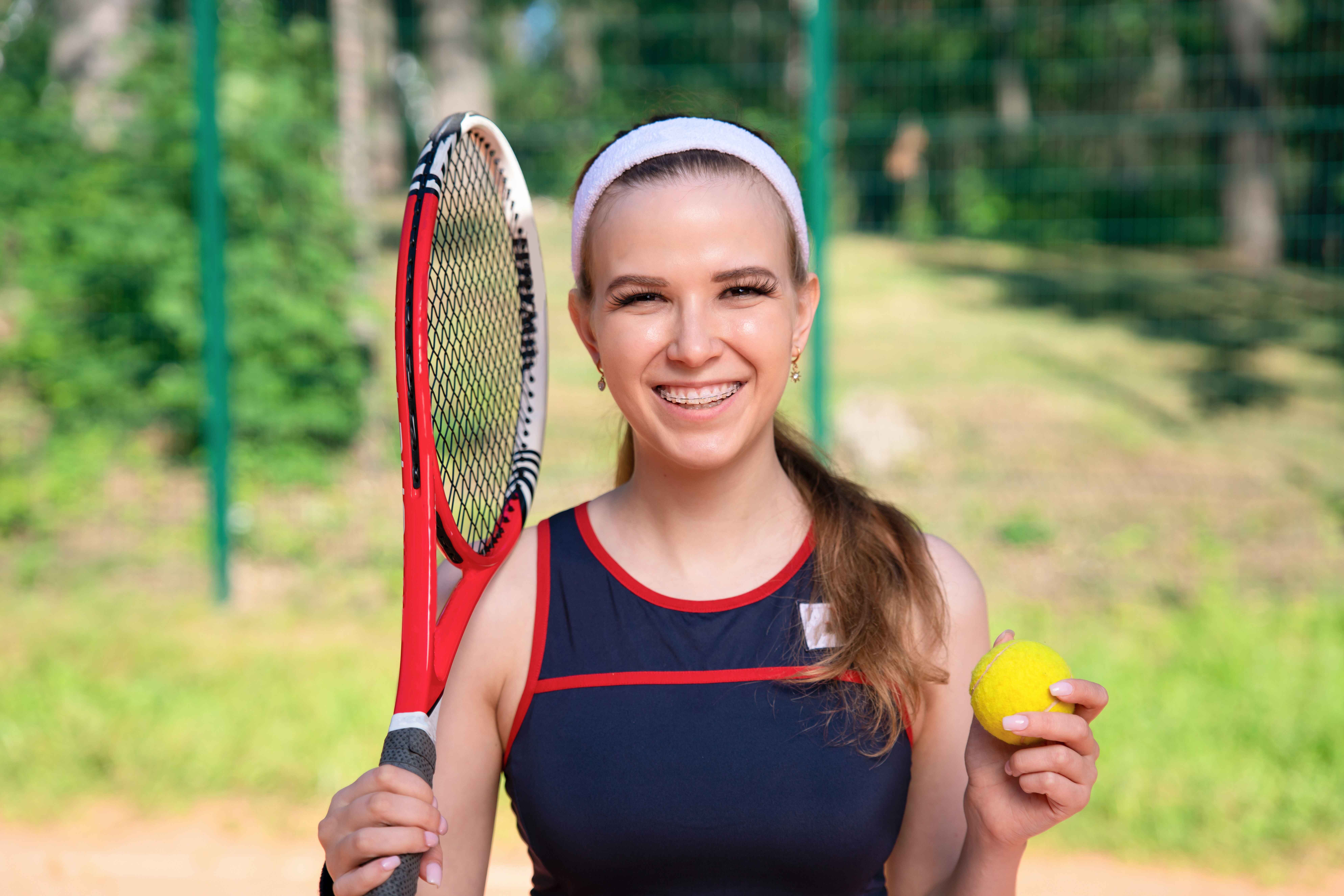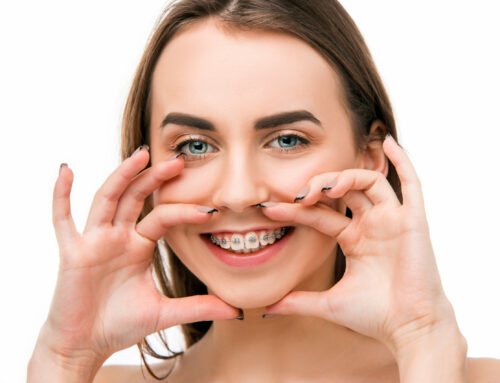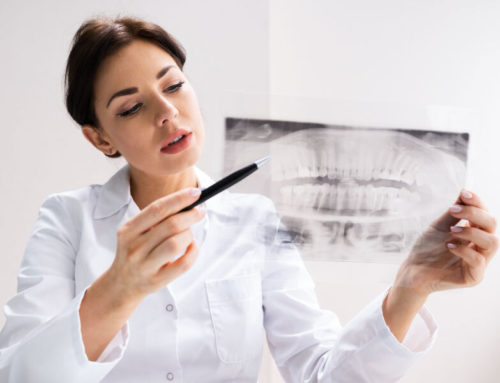Engaging in sports is an excellent way to stay active, improve fitness, and have fun, but if you wear braces, it’s important to take certain precautions to protect your teeth and braces while participating in physical activities. While braces work to give you a straight, beautiful smile, they can also make your teeth more vulnerable to injury if you’re not careful. Whether you’re playing basketball, soccer, or participating in any other contact sport, protecting your braces should be a priority.
In this blog post, we’ll discuss the importance of protecting your braces during sports, provide tips on how to stay safe, and explain how Sloss & Carpenter Orthodontics can help you keep your smile safe and healthy while you enjoy your favorite activities.
The Importance of Protecting Your Braces During Sports
When you have braces, your teeth are being gradually moved into new positions. During this process, they may be more susceptible to damage from impacts or sudden movements, especially during high-contact sports. Additionally, braces have brackets, wires, and other components that can be damaged if hit by a ball, another player, or any hard objects. These damages could require adjustments, prolong your treatment, or cause unnecessary discomfort.
Furthermore, without proper protection, you risk injuring the soft tissues inside your mouth, including your lips, gums, and cheeks. These injuries can be painful and may interfere with your ability to participate in sports or even lead to more serious complications if left untreated. Therefore, it is essential to take extra precautions when engaging in physical activities to safeguard both your braces and your oral health.
How to Stay Safe During Physical Activities with Braces
To ensure that your orthodontic treatment remains on track and that you avoid any unnecessary pain or damage, here are some practical tips for staying safe while participating in sports with braces.
1. Wear a Custom-Fitted Mouthguard
The most important step in protecting your braces and your mouth during sports is wearing a mouthguard. A mouthguard acts as a protective barrier between your teeth, braces, and any potential impact that may occur during physical activities. Mouthguards can help cushion blows to the mouth and reduce the risk of injury to your braces, teeth, and gums.
- Custom-fitted mouthguards: While generic, over-the-counter mouthguards can provide some protection, a custom-fitted mouthguard is the best option for athletes who wear braces. These mouthguards are designed specifically for your teeth and braces, offering a secure and comfortable fit. A custom guard will provide more effective protection than one-size-fits-all models.
- Mouthguard and braces: If you’re in active orthodontic treatment, it’s important to choose a mouthguard that accommodates your braces without interfering with your treatment. A well-fitted mouthguard will protect your brackets and wires from being damaged during play.
To get a custom mouthguard, ask your orthodontist about the best options available for braces wearers. Many orthodontic practices, including Sloss & Carpenter Orthodontics, offer mouthguards designed specifically for braces.
2. Avoid Hard or Sticky Foods Before Sports
Before playing any sport, it’s a good idea to avoid eating hard, crunchy, or sticky foods, which can loosen or damage your braces. Foods like hard candy, popcorn, nuts, or sticky gum can get stuck in your brackets or wires, making it harder to keep your braces clean. In the worst case, they can cause the brackets to become loose or break off entirely, leading to unnecessary discomfort and potential delays in treatment.
- Avoid chewing on hard objects: Never chew on hard objects like pens or ice, as these can damage both your braces and your teeth. This is especially important if you’re engaging in sports, as any unexpected impact could cause more severe damage when your braces are already under strain.
Stick to softer foods and be mindful of what you eat before and after sports to prevent damage to your braces and ensure your orthodontic treatment proceeds smoothly.
3. Be Aware of the Risk of Impact
Certain sports carry a higher risk of injury to your mouth, especially contact sports such as football, basketball, hockey, or soccer. When playing these types of sports, be extra vigilant about the potential for falls or collisions. A direct impact to the face could cause a painful injury or break your braces, so it’s essential to protect your mouth as much as possible.
- Know the risks: While you can’t control every aspect of the game, being aware of the risks associated with your specific sport can help you take preventative measures. For example, soccer players should be cautious of headers and tackles, while basketball players should avoid getting too close to aggressive opponents who may accidentally hit you in the face.
- Stay cautious: Always be mindful of the other players around you and how quickly the action is unfolding, especially when you’re wearing braces. Staying focused on the game will help you react quicker to avoid potential impacts.
4. See Your Orthodontist Regularly
Regular visits to your orthodontist are key to making sure that your braces are in good condition and that your treatment is progressing as planned. Your orthodontist can provide recommendations for additional protective measures based on your individual needs and help identify any issues early on.
- Get checked before sports season: If you’re preparing for a sports season, schedule an appointment with your orthodontist beforehand to ensure that your braces are in good shape. This can help avoid any complications during the game. Your orthodontist can also check that your mouthguard fits properly and provide guidance on how to use it correctly.
- Adjustments and repairs: If your braces become damaged during a sport, don’t wait until your next appointment to get them fixed. Contact your orthodontist right away to have any issues addressed, so your treatment can stay on track.
5. Take Care of Your Braces After Sports
After playing a sport, it’s important to check your braces for any damage and to clean your teeth thoroughly. Braces can trap food particles, sweat, and bacteria, so brushing and flossing after physical activities will help ensure that your braces stay clean and functional.
- Check for damage: After playing, make sure that no wires are poking out or brackets are loose. If you notice any issues, contact your orthodontist for an adjustment or repair.
- Maintain oral hygiene: Make sure to brush your teeth properly and floss between your braces to remove any leftover food or plaque buildup.
Contact Sloss & Carpenter Orthodontics for Expert Care
At Sloss & Carpenter Orthodontics in Centennial, CO, we’re dedicated to helping you maintain a healthy smile while enjoying your active lifestyle. Whether you’re participating in sports or other physical activities, we can help you protect your braces and ensure that your orthodontic treatment stays on track.
If you’re looking for advice on how to safeguard your braces during sports or if you need a custom-fitted mouthguard, don’t hesitate to reach out to Sloss & Carpenter Orthodontics. We’re here to help you achieve the smile of your dreams, while also keeping your braces safe and functional.




